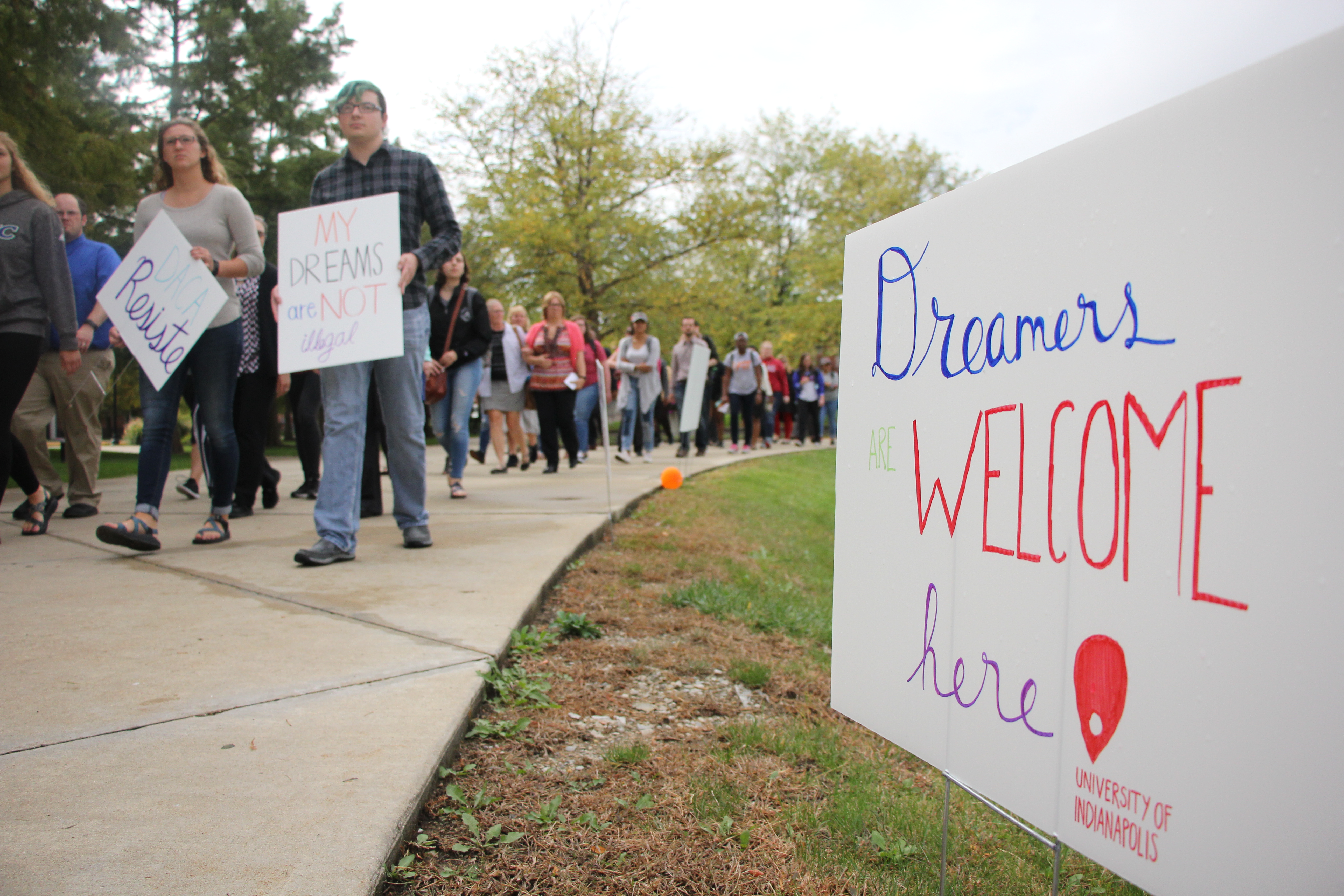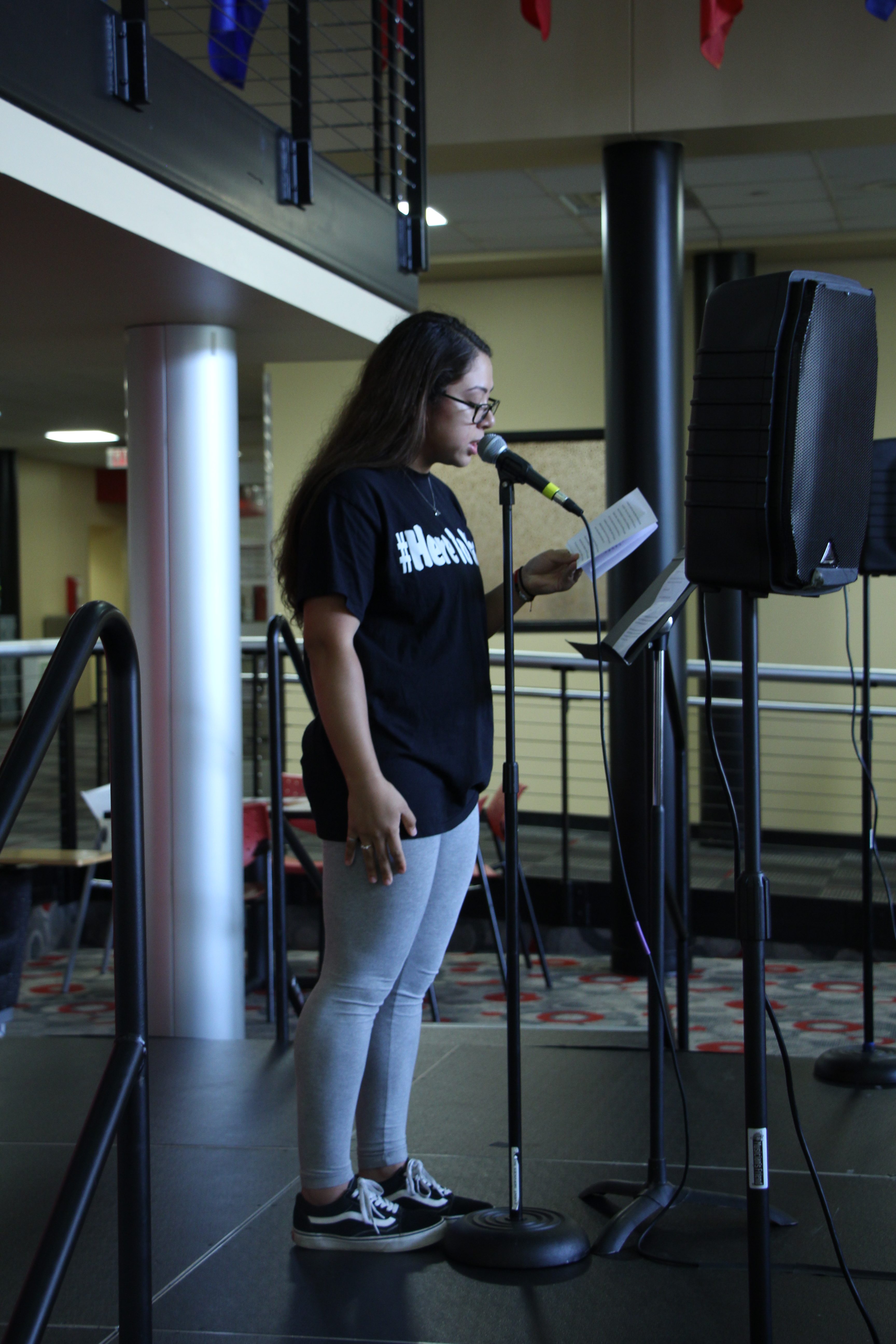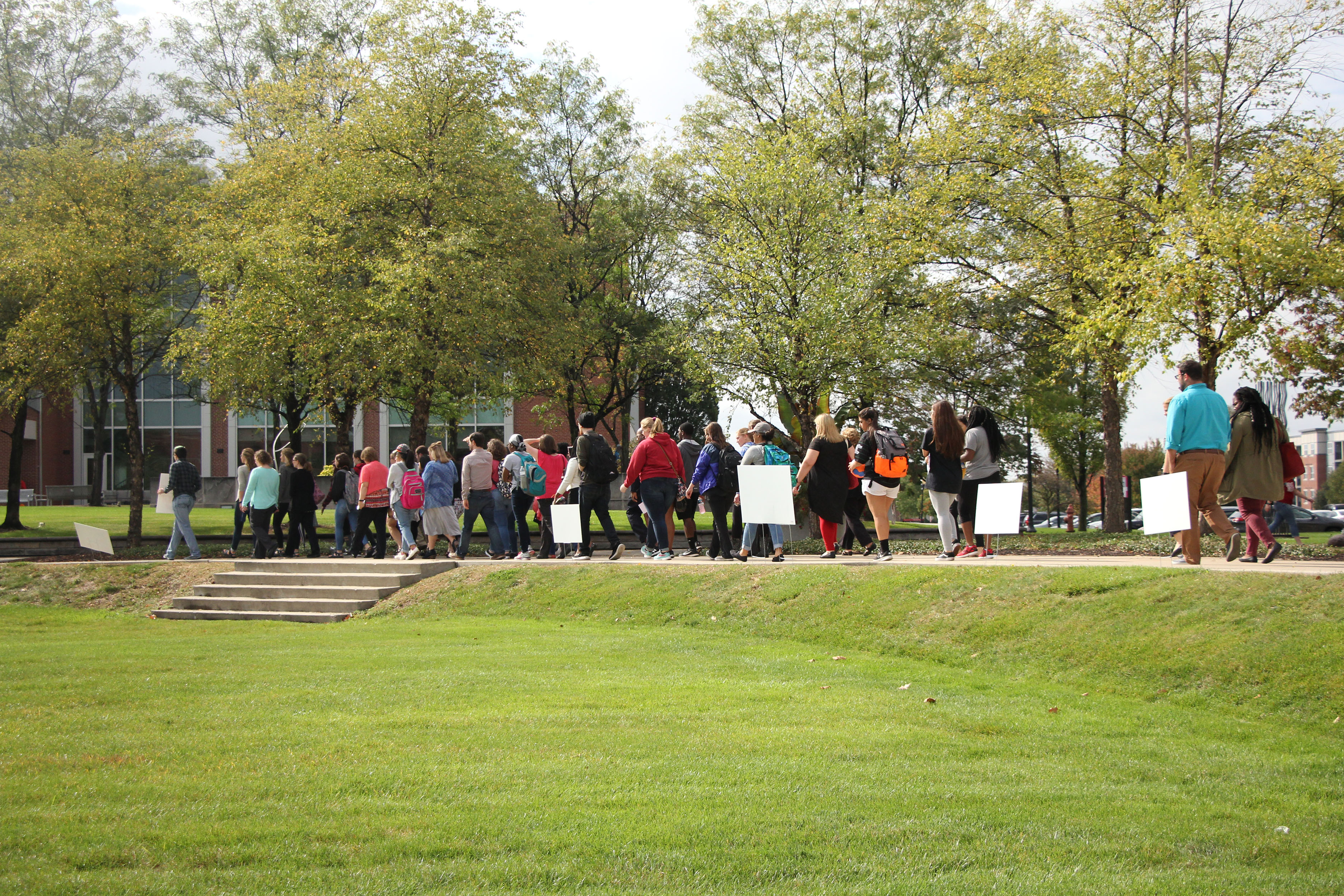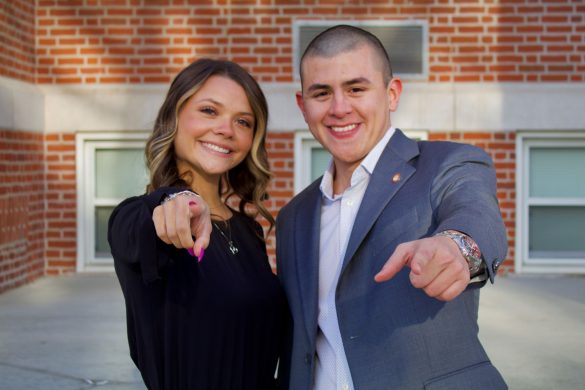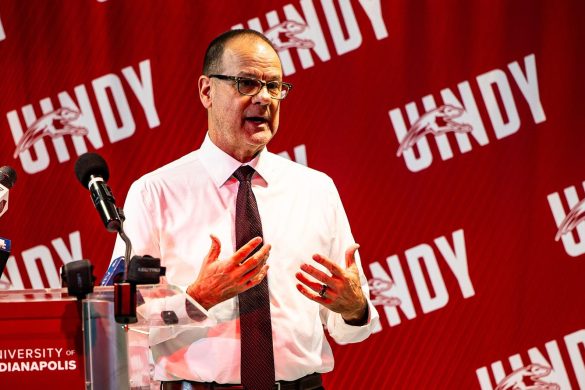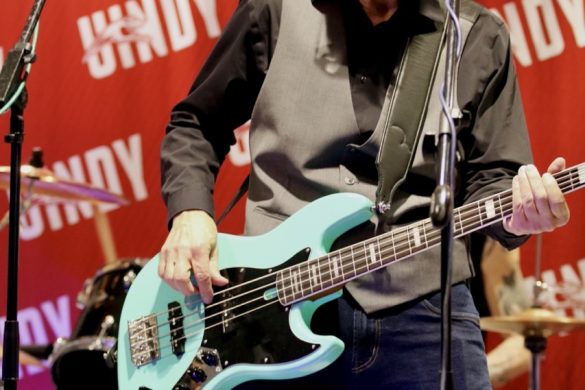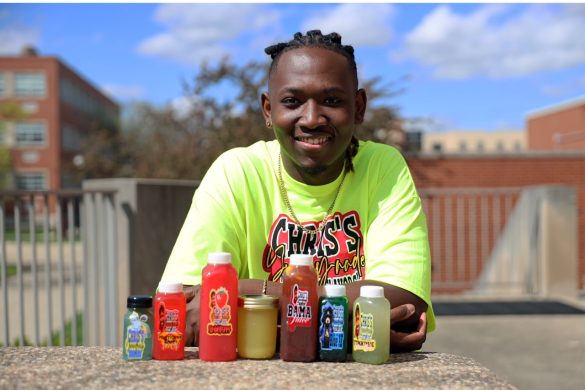On Oct. 4, the day before the final day Dreamers could renew their Deferred Action for Childhood Arrivals status, University of Indianapolis students, faculty, staff and community members gathered in the Schwitzer Student Center Atrium at 3 p.m. for the DACA Walk of Silence ceremony. The event was sponsored by Interfaith Scholars, PRIDE and Student Organization of Latinos.
The first speaker at the event was Director of International Services Mimi Chase. She focused on explaining DACA and its importance.
“In order to have a position on any issue, we must first become informed,” Chase said. “So my goal today is to educate you on DACA.”
Chase explained that those who are sheltered under DACA are called Dreamers. President Donald Trump recently announced plans to end DACA, which has protected about 800,000 young undocumented immigrants who were brought to the U.S. by their parents as children, according to CNN.com. Congress has been given until Mar. 5, 2018 to keep the protections granted to the Dreamers, otherwise they will lose their status and risk deportation.
When Chase discussed this deadline and upcoming decision, she said the best thing that could happen would be for Congress to pass permanent legislation that would be favorable to Dreamers.
Junior psychology major and Co-President of PRIDE Noah Hinkley then spoke about how to be a good ally to Dreamers.
He said there are three steps: realizing that there is a problem and internalizing it, speaking up about the problem and stepping back to let those who have been directly affected have a chance to share their experiences and concerns.
Kimberly Romero, a Dreamer, Latino and student from Ben Davis High School spoke about her experiences. Romero said she came to the U.S. in 2001 and quickly assimilated, learning English and even losing her accent.
“From the moment I arrived in the U.S., I felt like any other citizen,” Romero said.
She said that growing up, she lived in constant fear that her house would be raided and her parents would be arrested and deported. Before she got DACA status, Romero said, she often had to make excuses about things, such as why she did not have a car or drive, why she never traveled outside of the country and why she did not apply for scholarships, but DACA helped with that.
Vice President and Chief Equity and Inclusion Officer Sean Huddleston spoke about unity on campus and how the UIndy community could come together to support Dreamers.
He said Dreamers often have to live in the shadows, in fear of deportation, and he would like to see a permanent pathway for Dreamers to stay in the U.S. Huddleston said that it is important to look at what unites people and that without the Dreamers, UIndy would not be the same.
“All of us at some point in our lives. . . want to not be in the shadows, and that’s what unity is,” Huddleston said.
After the ceremony, attendees silently walked around Smith Mall to show their support for Dreamers. In addition to the ceremony, there were about 50 signs on Smith Mall all day that were made by UIndy students to show support for Dreamers, along with 18 printed educational signs, according to Hinkley.
Freshman exercise science major Hillary Carnall attended the DACA Walk of Silence and said she came to the event not knowing much about DACA, but learned a lot.
“I didn’t realize how many people it affected. When they mentioned that people here—students here—were affected, I didn’t realize that,” Carnall said. “I walk around this campus every day and I just don’t know their stories. I was privileged. I was born here. My parents were born here, so I’ve never had to deal with that fear. And to walk around knowing that some people do have to deal with that fear is just—it hit me.”
Chase, Hinkley and Huddleston emphasized writing to members of Congress, and at the ceremony, a table set up so that attendees could have the chance to send letters to Indiana’s senators and show their support for Dreamers.
“We are asking for peace,” Romero said, “Some of us in the only country that we call our own.”
Hinkley said his own generation will often see articles or posts on social media and re-share them without thinking about them too much, but he would like to see students at UIndy do more.
“First, you’ve got to educate yourself.” Hinkley said. “[You have to] learn about the issue and learn about your stance. And then you need to make sure that you communicate that stance to people around you and try and educate them, and also to your representatives, because in the end, they’re the ones making legislation on our behalf.”
He said it is not difficult to reach out to a senator or representative, and he recommends that anyone who supports DACA do so.
